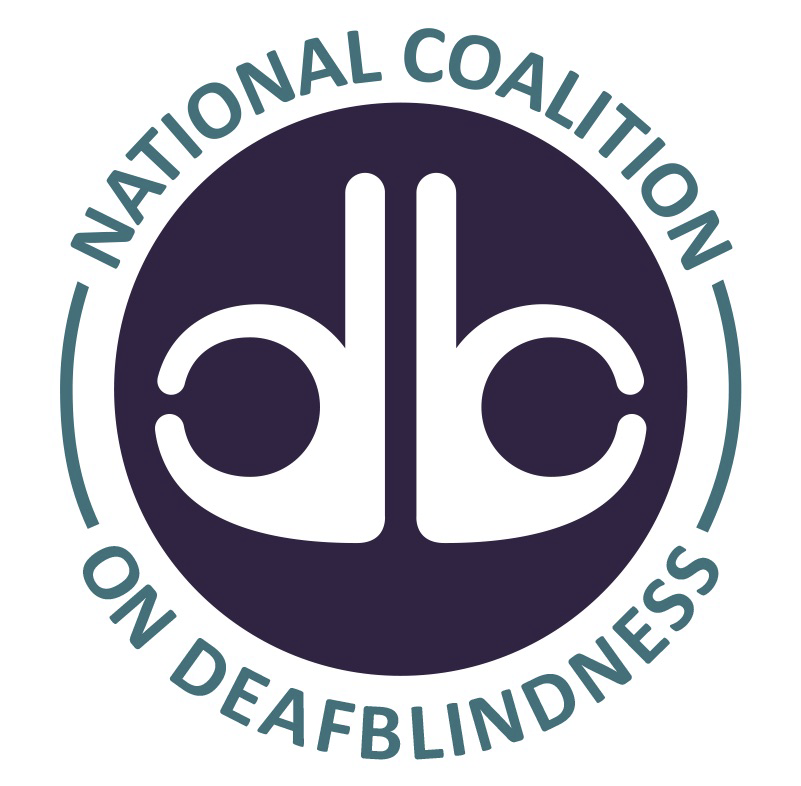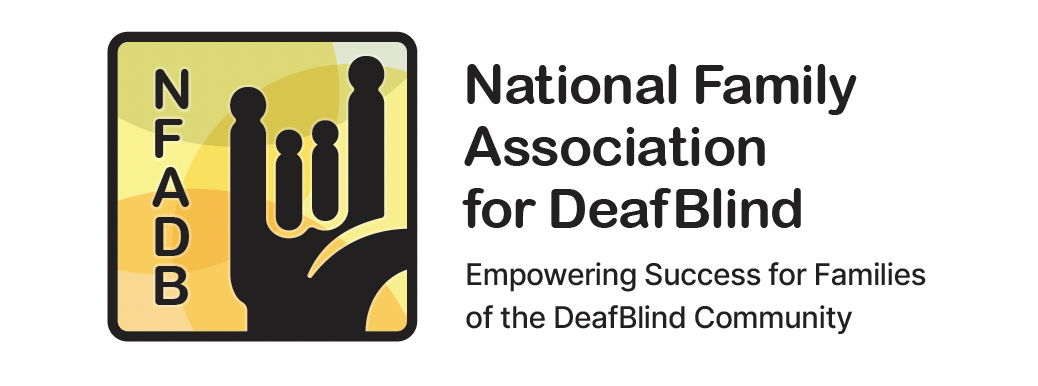
What is the Coalition’s mission?
The National Coalition on Deafblindness provides information and advocacy in a collaborative way to policy makers, fiscal agents, education professionals and community leaders on behalf of children and youth who are deafblind, in conjunction and partnership with adults who are deafblind, families, and stakeholders.
Who are the Coalition’s national partners?
- American Association of the Deafblind
- CHARGE Syndrome Foundation
- DeafBlind Citizens in Action
- Helen Keller National Center
- National Family Association for Deaf-Blind
- Usher Syndrome Coalition
What does the Coalition do?
The Coalition’s current focus is to advance the Alice Cogswell and Anne Sullivan Macy Act in the U.S. Congress (see more about the Cogswell-Macy Act below). The Coalition is in the process of incorporating as a 501(c)(3) non-profit organization so that we can begin recruiting organizational members and individual members who want to help support the Cogswell-Macy Act.
What is the Alice Cogswell and Anne Sullivan Macy Act?
The Cogswell-Macy Act is federal legislation that amends IDEA on issues specific to the education of students who are Deaf and hard of hearing, blind and visually impaired, and deafblind. The Act has three titles (or sections):
- Title I: Improving the Effectiveness of Special Education and Related Services for Students who are Deaf or Hard of Hearing
- Title II: Improving the Effectiveness of Special Education and Related Services for Students with Visual Disabilities
- Title III: Improving the Effectiveness of Special Education and Related Services for Children and Youth who are Deafblind
Title III, which is the section specific to deafblindness, amends IDEA to add interveners as a related service. Title III corrects the federal definition of deafblindness by proposing a new definition that is clearer and is consistent with other federal definitions. Title III also requires states to report on how they will ensure the availability of qualified interveners and teachers of children who are deafblind.
The Cogswell-Macy Act has been introduced in the past three Congresses:
Congress Years House and Senate bills
- 113th Congress 2013-2014 House Resolution (HR) 3535
- 114th Congress 2015-2016 House Resolution (HR) 4040
- 115th Congress 2017-2018 House Resolution (HR) 1120 and Senate Bill (S) 2087
In the House of Representatives, the Cogswell-Macy Act was introduced by Rep. Matt Cartwright (DPA) and co-sponsored by Rep. David McKinley (R-WV). At the end of the last Congress in 2018, the Cogswell-Macy Act had been referred to the House Committee on Education and the Workforce, where it eventually ‘died in committee.’ At that time, however, the Act had a record 48 bipartisan cosponsors, including 10 Republicans and 38 Democrats. In addition, the 115th Congress was the first time the Act was introduced in the U.S. Senate, which is a legislative necessity for a bill to move forward. In the Senate, the Act was introduced by Edward Markey (D-MA) and co-sponsored by Shelley Moore Capito (R-WV).
For the full text of the Cogswell-Macy Act and list of co-sponsors in the House of Representatives from the last Congress in 2018, go to: https://www.congress.gov/bill/115th-congress/house-bill/1120.
What’s happening right now with the Alice Cogswell and Anne Sullivan Macy Act?
The Coalition is actively engaged with key stakeholder groups to make any needed minormadjustments to the Act’s language prior to the Act being re-introduced into the House and Senate. We are hopeful that we will have the continued support of House members and Senators who introduced or co-sponsored the legislation in the past.
The Cogswell-Macy Act may or may not be passed by Congress as a stand-alone bill, or it may eventually be merged with other federal legislation. It is also possible that if Congress begins drafting language for the reauthorization of IDEA—which is many years overdue—the language in the Cogswell-Macy Act will be included in that reauthorization process. It is important to remember that many organizations and constituent groups support the intent of the legislation and this support will help us to ensure that these needed changes to IDEA are eventually enacted, either through passage of the Cogswell-Macy Act or through Congressional reauthorization of IDEA.
What can you do to support the Alice Cogswell and Anne Sullivan Macy Act?
Stay connected to the Coalition on Twitter. Once the Cogswell-Macy Act is reintroduced, we will need our supporters to contact their respective Representatives and Senators and ask that they support the legislation by co-sponsoring and by encouraging their colleagues to do the same. This should be an easy request. Personal stories from local constituents are powerful tools for getting the attention of lawmakers. This is legislation that improves services to a population of students that might be relatively small in number but that have extraordinarily complex and specialized educational needs.
How can you learn more about the Alice Cogswell and Anne Sullivan Macy Act?
To learn more about the Cogswell-Macy Act, go to: https://cogswellmacyact.org.
Who constitutes the Leadership Team of the National Coalition on Deafblindness?
The current Leadership Team of the Coalition includes the following individuals (listed alphabetically):
Maurice Belote, California • Jacqueline Izaguirre, Texas (NFADB Liaison)
Tracy Luiselli, Massachusetts • John Mascia, Alabama
Follow the Coalition on Twitter: @DB_Coalition

